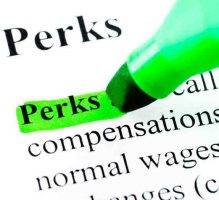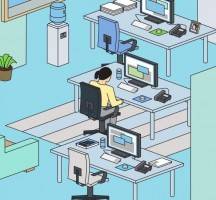July 26, 2016
Majority of employees think screening Olympics will boost productivity 0
 Screening sporting events in the workplace may increase productivity, according to research released by employment law specialist Peninsula. In a survey of 894 employees across the UK, 64 percent reported being more productive as being allowed to watch sporting events at work. The survey, which claims to examine how businesses managed employees during the first half of the summer of sports also revealed that 46 percent of employees want clearer policies regarding watching sporting events at work. This related to the fact that employers only showed certain games during Euro2016 and didn’t show any of the Wimbledon tournament. 51 percent of respondents also called for employers to be more flexible during major sporting games allowing them to start late, leave early or swap with colleagues. 24 percent said that a lack of flexibility would encourage their decision to call in sick in order to watch their favourite sporting event.
Screening sporting events in the workplace may increase productivity, according to research released by employment law specialist Peninsula. In a survey of 894 employees across the UK, 64 percent reported being more productive as being allowed to watch sporting events at work. The survey, which claims to examine how businesses managed employees during the first half of the summer of sports also revealed that 46 percent of employees want clearer policies regarding watching sporting events at work. This related to the fact that employers only showed certain games during Euro2016 and didn’t show any of the Wimbledon tournament. 51 percent of respondents also called for employers to be more flexible during major sporting games allowing them to start late, leave early or swap with colleagues. 24 percent said that a lack of flexibility would encourage their decision to call in sick in order to watch their favourite sporting event.











 A new study published to coincide with Smarter Working Day (today, apparently) claims that almost half of UK workers (48 percent) don’t think their current employee benefits package is tailored to their needs. The study of 1,000 UK workers published by payroll lending provider SalaryFinance claims that 38 percent of UK workers currently have access to flexible working although only 26 percent say they prefer the chance of flexible working to financial and psychological wellbeing benefits. Fewer than one in five (19 percent) currently have access to benefits designed to support mental wellbeing, such as counselling services, and only one in four (26 percent) receive financial wellbeing support from their employer. In contrast, one in three (32 percent) receive ad hoc incentives such as free lunches, birthday cakes and duvet days. With 58 percent of people saying that their employer has never asked for feedback on their benefits programme, employers could be falling out of touch with the needs of staff, claims the research.
A new study published to coincide with Smarter Working Day (today, apparently) claims that almost half of UK workers (48 percent) don’t think their current employee benefits package is tailored to their needs. The study of 1,000 UK workers published by payroll lending provider SalaryFinance claims that 38 percent of UK workers currently have access to flexible working although only 26 percent say they prefer the chance of flexible working to financial and psychological wellbeing benefits. Fewer than one in five (19 percent) currently have access to benefits designed to support mental wellbeing, such as counselling services, and only one in four (26 percent) receive financial wellbeing support from their employer. In contrast, one in three (32 percent) receive ad hoc incentives such as free lunches, birthday cakes and duvet days. With 58 percent of people saying that their employer has never asked for feedback on their benefits programme, employers could be falling out of touch with the needs of staff, claims the research.


 A quarter (25 percent) of British workers would be willing to accept a lower salary in return for better ‘work perks’ a new survey claims. Employment bonuses, such as flexible working, a company car or free food have become increasingly popular over the last few years, which explains why 55 percent of UK workplaces already offer work perks, the survey suggests. Workers in Wales are most likely to accept a lower salary with almost a third saying they would accept a position for less money if it had better perks. The survey was commissioned by
A quarter (25 percent) of British workers would be willing to accept a lower salary in return for better ‘work perks’ a new survey claims. Employment bonuses, such as flexible working, a company car or free food have become increasingly popular over the last few years, which explains why 55 percent of UK workplaces already offer work perks, the survey suggests. Workers in Wales are most likely to accept a lower salary with almost a third saying they would accept a position for less money if it had better perks. The survey was commissioned by 


 UK growth had already eased from around 3 percent in 2014 to around 2 percent before the EU referendum due primarily to slower global growth, but the Brexit vote to leave the EU is likely to lead to a significant further slowdown. UK GDP growth is forecast to decelerate to around 1.6 percent in 2016 and 0.6 percent in 2017 according to
UK growth had already eased from around 3 percent in 2014 to around 2 percent before the EU referendum due primarily to slower global growth, but the Brexit vote to leave the EU is likely to lead to a significant further slowdown. UK GDP growth is forecast to decelerate to around 1.6 percent in 2016 and 0.6 percent in 2017 according to 
 The 21st Century has seen an explosion of self employment in the UK, and most people who have become self employed have done so for positive reasons, claims a new report from the UK Government’s Office for National Statistics. According to the
The 21st Century has seen an explosion of self employment in the UK, and most people who have become self employed have done so for positive reasons, claims a new report from the UK Government’s Office for National Statistics. According to the 
 Gensler has announced the results of its Workplace Survey 2016 for both
Gensler has announced the results of its Workplace Survey 2016 for both 
 The overwhelming majority of UK employees (81 percent) are working beyond their contracted hours, claims a report from recruitment firm
The overwhelming majority of UK employees (81 percent) are working beyond their contracted hours, claims a report from recruitment firm 










July 20, 2016
We need to keep a more open mind about open plan office design
by Maciej Markowski • Comment, Facilities management, Workplace design
(more…)